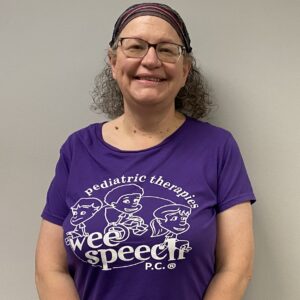Parental involvement in a child’s speech and language development is essential. Numerous
studies have shown that when parents and speech-language pathologists work together to help
practice skills in as many environments as possible, children make significantly more progress
towards their therapy goals.
It’s hard to learn any new skill if it’s only practiced for 45 minutes, once or twice per week. Think
about learning to play a musical instrument; your weekly lessons with a music teacher will help
you learn scales, chords and other techniques, but if you don’t practice at home, outside of your
lessons with your instructor, it will take a lot longer to master those skills. Speech-language
pathologists (SLPs) only have a limited time with your child each week. Whether your child is
learning to produce a certain sound, understand simple sentences, improve their fluency, or
learn new vocabulary, those skills must be practiced and reinforced frequently.
SLPs will use specific techniques and strategies to improve your child’s communication, but you
are in the unique position to provide consistent, daily speech and language intervention, as they
go through their regular routines. Play-time, meal-time, going to the store and even riding in the
car provide great opportunities to build your child’s communication skills.
While most parents want to be involved in their child’s speech therapy, they often feel uncertain
about what is expected of them, and their ability to carry out the intervention themselves at
home. You are well positioned to help your child, because your child is most comfortable
interacting and communicating with you, you know your child well, and you spend more time
with your child than an SLP ever can.
There are many ways you can play an active role in your child’s speech-language treatment:
● learn strategies and activities from your SLP that you can practice at home to help build
your child’s communication skills
● help your child do any speech “homework” they have been given; if you are having
challenges with engaging your child in speech practice, be sure to talk to your child's
SLP
● share what interests and motivates your child with their SLP
● describe your daily activities and routines; this will help the SLP learn what is most
important to you and your child and identify specific needs
● report changes and progress you see in your child
● work with your SLP to determine next steps and set goals
Together, we can help your child achieve their speech and language goals!
Get a Free Online Assessment
Looking for an expert opinion on your child's needs? Fill out a 3 minute questionnaire and receive a personal evaluation from our staff
By submitting this form, you are consenting to receive marketing emails from: . You can revoke your consent to receive emails at any time by using the SafeUnsubscribe® link, found at the bottom of every email. Emails are serviced by Constant Contact




